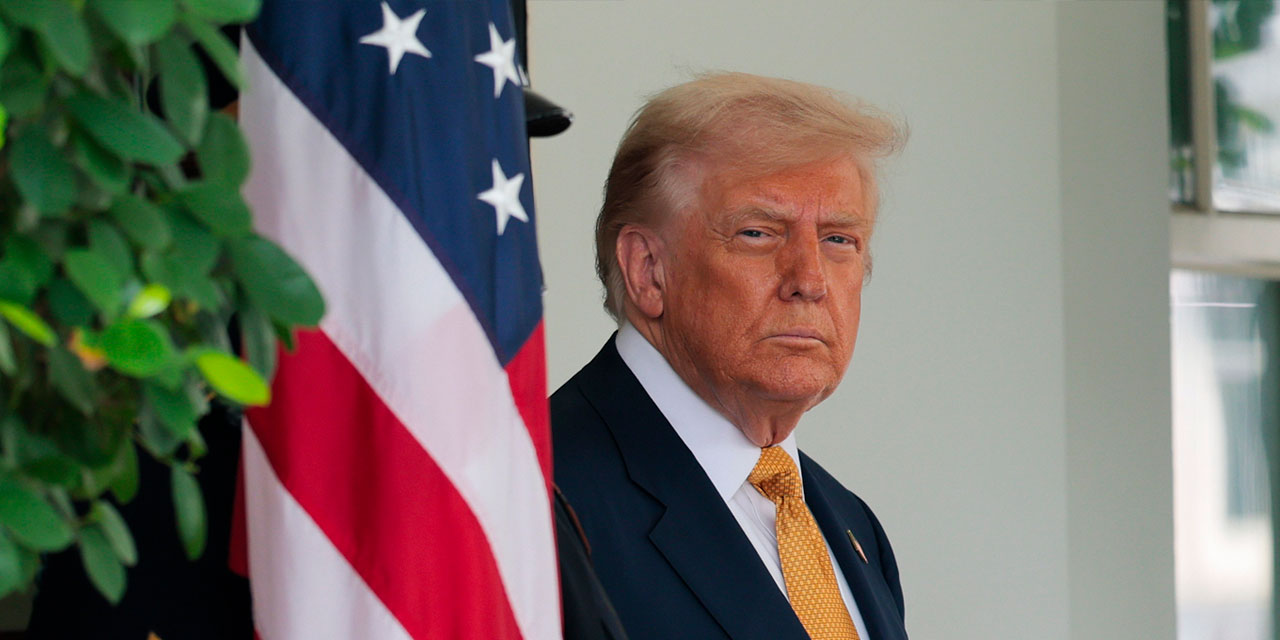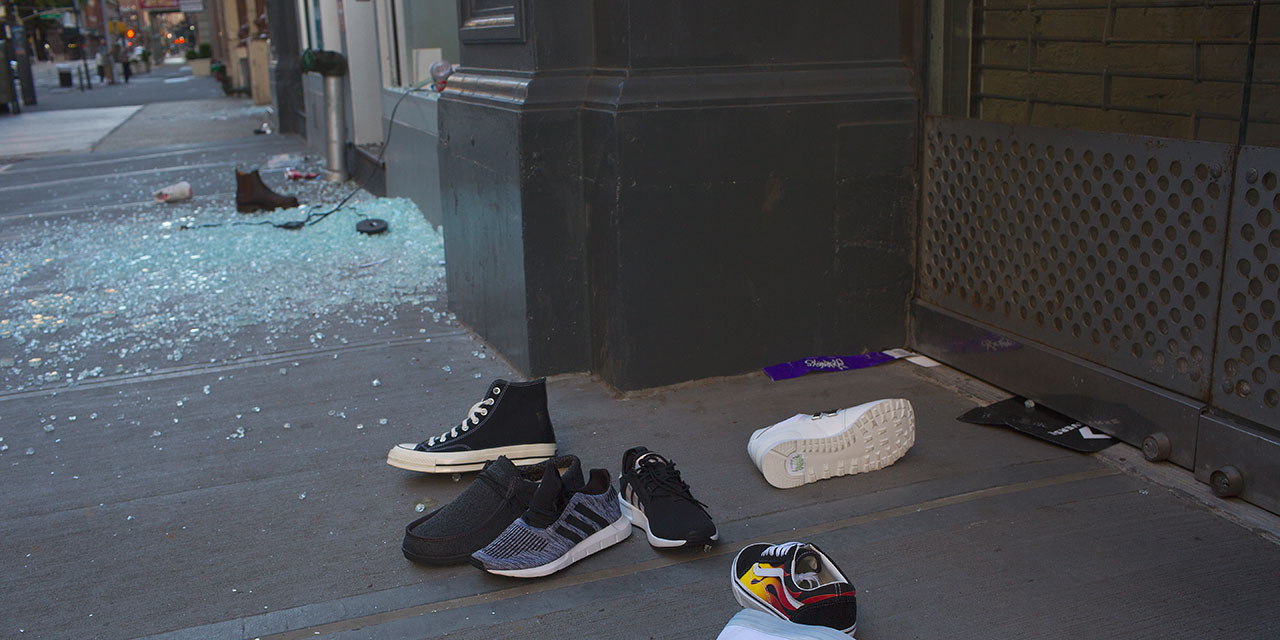With France at its highest state of security alert, Paris is preparing to welcome some 15 million visitors to the Summer Olympic Games on July 26. A sports fan’s dream, the 17-day competition, to be followed by the Paralympics, is a security official’s nightmare. The games are an almost irresistible terrorism target—an iconic event whose opening night ceremony alone is expected to be attended by some 120 heads of state, 10,500 athletes from 206 countries, and broadcast by television networks from almost as many nations. The whole world will be watching.
The 2024 Summer Olympics, the largest event ever held on French territory, will come on the heels of what is expected to be a bitterly contested national election, as President Emmanuel Macron stunned the nation by calling a snap vote soon after his party was trounced by the far Right in recent parliamentary election for the European Union.
Finally, a reason to check your email.
Sign up for our free newsletter today.
The French police have already thwarted the games’ first publicly documented terrorist threat. On May 22, they arrested an 18-year-old Chechen for allegedly planning to bomb spectators and police at a soccer stadium in Saint-Etienne. The General Directorate of Internal Security issued a statement accusing the alleged, unidentified Islamist of wanting to die in his attack “and become a martyr.”
Gerald Darmanin, France’s interior minister, said that the games faced multiple threats—from the Islamic State and other militant Islamic groups, violent environmental activists, the far Right, and cyberattacks from Russia, which was barred from the games after its 2022 invasion of Ukraine.
But a senior French law enforcement official, speaking on background in an interview in Paris in June, said that Islamic terror is not law enforcement’s top concern. Despite deadly France’s history of Islamist attacks and the large Arab population from its former North African colonies, senior French and American police said that potential disruption by youth riots, protests, or strikes were the games’ biggest threat. To avoid such disruptions, the government has recently negotiated hefty salary increases and bonuses with France’s powerful unions—for example, with Paris’s sanitation workers.
Officials’ second-greatest concern is cyber terror, a growing global threat. In 2021, the Olympics Games in Tokyo endured an estimated 450 million cyberattacks, according to technology giant Cisco. The company, which is an official partner for Paris 2024, says it expects eight times more attacks on the Paris Games. French cyber experts say that they anticipate attacks from criminals, protesters seeking to publicize their grievances, and Russia, whom President Macron has publicly accused of cyber terror and spreading disinformation to try to disrupt the games. In response, the Olympic cybersecurity committee has recruited several private companies and nations, including South Korea, to conduct “war games” to test France’s defenses and avoid the kind of attack that almost closed the 2018 winter games in Seoul.
Those chiefly responsible for protecting the athletes and spectators are French police officers, nearly 35,000 of whom will be deployed during the games. Their ranks will include three elite law enforcement SWAT units. The BRI, the French equivalent of an American SWAT team, is equipped with high-powered weapons, bridging equipment, rappelling teams, and hostage negotiators. This tactical unit—with about 100 officers in Paris—has been conducting preparatory exercises for more than 18 months and is responsible for protecting activity on land. Another national police unit, RAID, will patrol the Seine and other French waters. The Gendarmerie (typically responsible for small towns and rural areas) also has an elite unit, the GIGN, which has responsibility for everything in the sky.
These units have worked closely with French intelligence to devise the nation’s security plans, officials say. The need for such cooperation was underscored by the 2015 Islamist massacre at the Bataclan concert hall in Paris, which killed 130 and wounded 494, and the 2022 Real Madrid–Liverpool game, in which police hit fans with tear gas and struggled to control the crowds.
The massive security effort is primarily focused on the opening ceremony, which for the first time will be held not in a stadium, but on the Seine, a river with more than 100 access points. As a summer sun sets on the river, athletes will float on boats down a four-mile stretch through the heart of Paris, waving to cheering crowds. In January, however, French officials reduced the number of spectators who will line the river’s banks from about 600,000 to 300,000, citing security concerns. After a deadly Islamist attack at a Russian concert hall in March, France raised its security readiness to the highest level.
Other restrictions will be in place. Paris airspace, for example, will close on opening night, as will many Metro stations and roads surrounding the athletic venues. Travelers and residents along the Seine will need a QR code to pass security barriers. Snipers will be posted atop buildings near the Seine and other iconic buildings, as bomb-sniffer dogs hunt for conventional bombs and unconventional weapons in squares, parks and train stations. National-security personnel have been monitoring the nearly 10,000 religious extremists identified on France’s terrorist watch list, and officials are closely scrutinizing prison parole requests and Airbnb rentals. French officials, with U.S. governmental assistance, are monitoring social media posts. “France’s intelligence commitment is very impressive,” said Nicolas Gouzien, a bilingual NYPD officer who has been embedded in the French police in Paris for seven years.
The international law-enforcement presence is reportedly robust. For the games, the French police—plus 18,000 military personnel, some 7,000 firefighters, and over 2,000 private security personnel—will be supported by 2,200 foreign police from 46 countries. One of the largest contingents comes from Los Angeles, which is sending some 33 police officers and bomb-sniffing dogs to the games; L.A. is scheduled to host the next summer games, in 2028. The NYPD is also pitching in. In addition to Gouzien’s post in Paris, the department is sending over four bomb dogs and their handlers from its K-9 unit. “Some say such extensive security measures are overkill,” Gouzien said in an interview. “I say they are great.”
France’s security lags that of the U.S. and other European democracies in one respect: the number of surveillance cameras. Paris had roughly 4,000 of them as of December 2022, compared with the 18,000 that the NYPD operates in New York City. While the French parliament in 2023 approved cameras on an experimental basis similar to those used by New York to spot suspicious behavior—an abandoned suitcase or briefcase, or people moving against the flow of traffic—facial recognition is still limited.
French police face a daunting challenge in protecting so many events spread throughout the country. The royal Palace of Versailles, where Louis XVI and Marie Antoinette once held lavish banquets, will host equestrian events. The Place de la Concorde, where Louis and his wife were guillotined in 1793, will see skateboarding and basketball. Fencing and taekwondo will take place in the Grand Palais, and hockey will be played in Yves-du-Manoir Stadium, the main venue for the 1924 Paris Games. Soccer, Europe’s passion, will be played at seven of France’s largest stadiums, and beach volleyball will take place at the foot of the Eiffel Tower. Marseilles, France’s second-largest city, will host sailing competitions, as surfers compete in far-flung Tahiti.
One senior French detective was particularly concerned about the suburb of Saint-Denis, which will host the Olympic village and soccer matches in the national stadium. Saint-Denis, which has absorbed wave upon wave of young, desperately poor immigrants, has one of the nation’s highest rates of robbery, drug offenses, and murder. “It’s worse than the Bronx,” said one officer who knows America well. Some 37 percent of the suburb’s residents were born outside of France; 18 percent are Arabs from North Africa, as opposed to the 10 percent national average for cities. A third of its inhabitants live below the poverty line.
Officials and travelers alike are concerned about crime. Police leadership have already deployed extra plainclothes officers at popular bistros and cafes to stop pickpockets and other thieves, which George and Carol Dehan, American tourists in Paris, discovered in late May. Carol had hung her fanny pack containing a passport, credit cards, and cash on a chair in La Plume, a popular restaurant. At the end of their lunch, the couple were approached by two plainclothes police officers who identified themselves as part of the Olympics beefed up surveillance effort. Wasn’t she missing something? they asked. The cops had seen and pursued a thief who lifted her pack off the chair. The thief turned out to be part of a three-man ring working the area. Two hours later, Carol retrieved her pack with its passport, credit cards, and $420 in euros at a nearby police station. The suspects were in custody, the police told them, and would be tried the next day.
Isn’t that how it worked in the U.S.? the cop asked George. “I’m afraid not,” he replied.
Photo by JOEL SAGET/AFP via Getty Images




